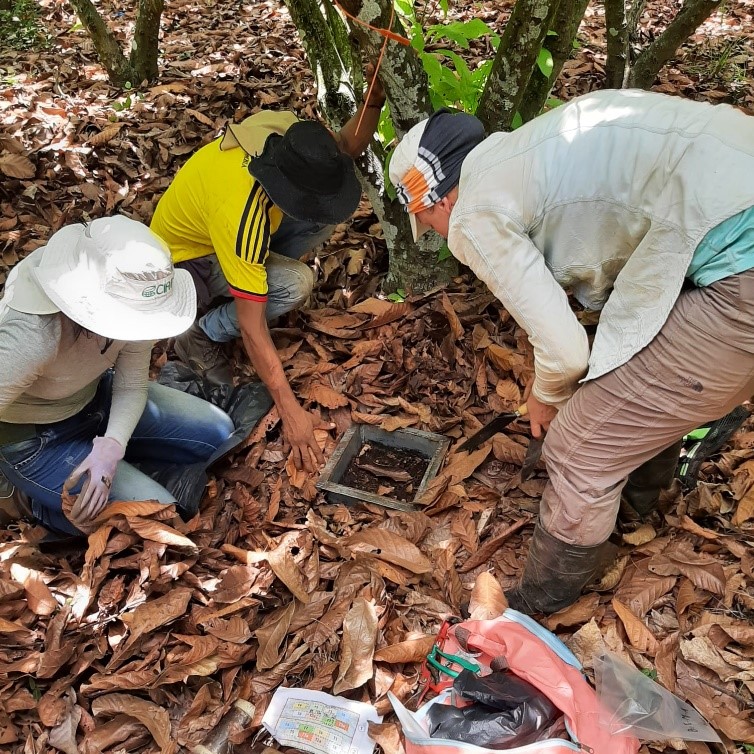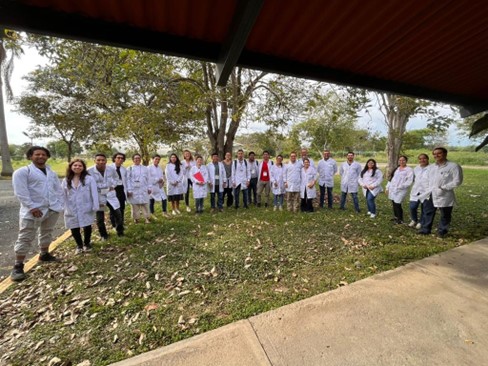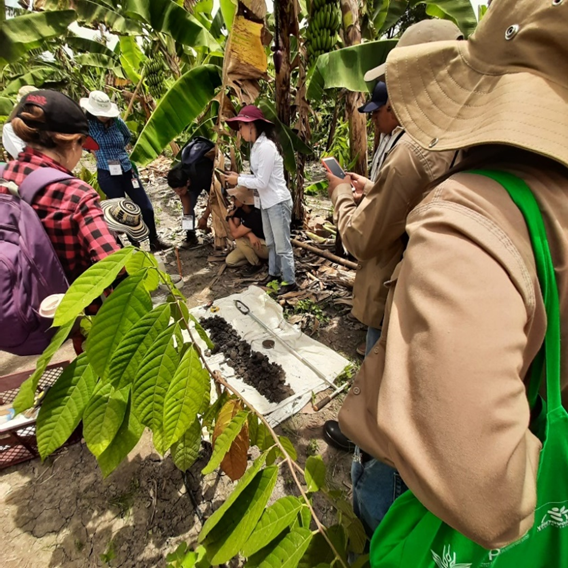Soil health assessments in cacao farms in Colombia and Ecuador are ongoing in the context of the Clima-Loca project[1]! What do we measure? Chemical, physical and biological indicators are measured that capture multiple soil functions as affected by soil management and agroforestry designs. These multiple functions include nutrient cycling, carbon transformation and storage, soil structure and water regulation and contaminant mitigation and contribute to broader societal benefit such as production of food, climate regulation, biodiversity, soil erosion control and more. Preliminary findings show a trend toward positive impact on nutrient and carbon cycling of organic agriculture, and agroforestry when including leguminous trees. Monitoring changes in soil health indicators during multiple years is needed to effectively capture the effect of soil management practices or system designs on soil functioning. More sampling and measurements will follow in Colombia, Ecuador and Peru’ in 2024! 
Figure 1. Earthworm sampling in a cacao farm in Cesar (Colombia) where various organic and inorganic soil amendments have been evaluated since 2022.
During the week of 8-12 May 2023 at CIAT campus in Colombia, the Clima-LoCa project organised a training workshop on soil health assessment led by Wageningen University. Twenty researchers, field practitioners and laboratory staff participated in lectures on soil health,and made assessments of soil health in the CIAT laboratory and in the field. Interpretation of results and communication to end-users was also discussed during the workshop. The week was a great opportunity to exchange knowledge and ideas on soil health and we look forward to continuing this exchange in future workshops and extending the trainings to cacao farmers in Colombia, Ecuador and Perú. 
Figure 2. Participants of the soil health training workshop in CIAT (Cali, Colombia – May 2023).
What is soil health and why/how should we measure it? The capacity of the soil to perform its multiple ecological functions is known as “soil health” and it can be highly affected by agricultural management. The Clima-Loca project is working on a flexible soil health framework that takes into account the contexts of smallholder cacao farming systems and is adaptable to different end-users including researchers, farmers and agronomists. The framework combines approaches and tools to (i) gain knowledge of baseline soil health conditions, (ii) inform management interventions, (iii) monitor progress towards predefined goals. This approach requires robust indicators that encompass chemical, physical and biological properties and processes. These indicators should be meaningful in terms of soil functions and sensitive to changes in agricultural practices. Challenges regarding the indicators are related to their potential for scaling (related to their cost efficiency and applicability) and their interpretation. Statement from the ClimaLoca project as a whole. For further info on soil health addressed in the ClimaLoca project: Giulia Bongiorno, Soil Biology group (Wageningen University & Research).
1 The aim of the Clima-Loca project is to foster low cadmium and climate-relevant innovations to enhance the resilience and inclusiveness of the growing cocoa sectors in Colombia, Ecuador and Peru.

